#2+4
Explore tagged Tumblr posts
Text
Gordon and Edward, Part 2
Hello and welcome back to "Jobey ruins beloved RWS characters for you, using the power of... the actual RWS text!" 😇
Part 1: Gordon, what's your damage? 😭 / The Doylist Reason / Rent. Free.
Post 2 (this post): Edward's Defences / Gordon's Growth
Post 3 (upcoming post, link later): Collision / Uh… Cleanup Crew?

Edward's Defences
Pretty consistently, through the next 45 years, Edward (most conflict-avoidant engine ever built?) takes a four-pronged approach to dealing with Gordon and the threat he represents:
He keeps Gordon at a distance. He focuses on building connections with… Literally Everyone Else. Gordon is kept more than a good buffer's length away (and when they must be in close proximity things do tend to go south in a hurry).
He tries to never give Gordon a reaction, or any other ammo. Will not admit weakness or discomfort or upset. Difficult, because he has a transparent face when he's sad! And he's comfortable confiding in others! But he'll never, willingly, let Gordon see him bleed.
Instead he treats Gordon very lightly. Adopts a sort of affectionate knowingness, which allows him to "laugh off" Gordon's more irritating or threatening qualities.
He takes control of the narrative. He doesn't shy from telling humans the engines' business. He spreads stories (I'm not saying false stories) that counter Gordon's branding of himself as supreme and infallible. He also builds his own brand as reliable and sensible.
Where do I get all this from? The text:
"I've got some trucks to take home tomorrow," he told him. "If you take them instead, I'll push coaches in the Yard." (~1925)
We're less than one full book away from "now all three engines are great friends" and Edward is already shedded somewhere else, baby. That move was likely integral to developing those two new friendships with Henry and especially with Gordon… ironic but true. Hey, we know that the big engines seem to have only learned to appreciate Thomas after he left, too! And, of course, it gives Edward some space from all of the *waves hand vaguely* at the Big Shed. He doesn't like conflict (and Gordon is a conflict-generating machine).
They both rested at the next station; Edward told James how Gordon had stuck on the hill, and he had had to push him up! (1925)
Bro. Bro bro bro bro bro. I am pointing urgently.
This bit is so telling. It's been two years since the events of EDO/E&G and Edward is already seen defining Gordon's whole brand as we now know it to newcomers.
If it wasn't for that moment, I wouldn't insist with nearly as much confidence what I think then comes into focus as a clear fact: The early RWS itself is all evidence that Edward is winning the propaganda war, lol. Gordon's opinion of himself is a silly, endearing, limited point of view. Edward's opinion of himself is canon, bitches!
Incredible stuff.
This scene is a glimpse into the tactics that allowed Edward to eventually win this game (poor Gordon has no idea they're playing). Here he is laying the groundwork a good 20 years before the books about them were even published! And this is a good place to remind readers that, unlike in TVS where they make Gordon's hill problem a recurring gag, we only see Gordon stalling out there and requiring a banker's help once. In Christopher Awdry's Gordon the High Speed Engine, he also specifies that Gordon (who is about to have trouble on the hill again, in the 1980s) stuck before on this hill. "[O]nce." Once.
This is not a habit of his. It was a one-off thing. It's only remembered at all because his superior attitude and his ignorance of the words "thank you" offended Edward so deeply that he kept the memory of this event alive for over 20 years, until the Thin Clergyman got the story in print.
It's a bit messed up.
It's more than a bit petty.
It's so bloody funny.
No, I don't think Edward is some consciously evil Machiavellian genius. He's neither vindictive nor that far-sighted. But he's resilient, and creative enough to instinctively change the rules of the game when otherwise they'd grind him into rust. And there is his characteristic kindness mixed up in all of this, too: He needs to find a way to welcome Gordon's presence in his life, so he finds a narrative that makes Gordon funny and lovable instead of a threat. He sees James is insecure, so he tells that story at least partly from real solidarity and empathy. It's not like he's trashing Gordon, either – there is no lie told, and James is not put off trying to "motor-mouth" his way into Gordon's good graces. I'd characterize it, not as trashing Gordon, more… injecting an element of realism into his growing legend ;) We see in the same book that Gordon is continuing in his superior attitude (which involves putting others down, even if it's a bit more indirectly than he did two books earlier) and that his attitude depresses and dejects newcomers like James. There is good, civic-minded reason to slyly undermine Gordon's branding of himself as all-powerful and invincible – it's not good for the railway as a whole if Gordon is allowed to lord over them all on his throne unchecked, the new engines forever overawed. It is kind of Edward to welcome James and give him a boost, it's genuinely useful for everyone that in the end James triumphs to seize the role of a darkhorse rival junior but trusted colleague of Gordon's.
At the same time, while it's all justifiable and even beneficial, this action is also very useful in cementing Edward's own position. Let's just be clear-eyed about this.
"Shall I help you, James?" called Edward. / "No, thank you," answered James, "I'll pull them myself." / "Good, don't let them beat you." (1925-6)
Edward and James show a perfect understanding of each other in this moment – different though they may be, Don't let them beat you is a shared value. (Shared by a lot of engines, of course; probably a steam engine culture thing. Douglas says something similar in RWS after accidentally destroying the spiteful brakevan.) It applies here to trucks, but no doubt that's a value that motivates them in other areas, too.
It's just worth remembering this, when it comes to Edward's stance re: Gordon. He's more subtle about it than James is. He sort of has to be (he cannot directly compete with Gordon, as James can). But he's still determined to not be beaten.
Errr, but then Gordon triggers a chain of events that Edward could have never conceived of. The Fat Controller sends him to Tidmouth, Edward goes in with no idea what he's facing, and wham. We have the first of the two really severe strains on this relationship:
Gordon came clanking past, hissing rudely[...] / "They all hiss me, Sir," answered Edward sadly. "They say 'Tender Engines don't shunt', and last night they said I had black wheels. I haven't, have I, Sir?" (~1927)
Two things to note here. This clash doesn't only represent Gordon's and Edward's differing views on what is proper to the dignity of an engine and what he owes to his railway. That's all The Author can see of it, of course… The Author being a human, and thus with a vested structural interest in vindicating Edward's point of view on this matter — and in mocking Gordon's view to scorn. This is why, so far as the book is concerned, Gordon and his two big-engine followers don't have a wheel to run on here. The Gordon position is portrayed as thoroughly unreasonable (even if, despite the narrative's best efforts, the text must admit that the Fat Controller does actually have to get a new tank engine – which was Gordon's demand all along!)
Because of The Author's interest, there's no chance of any acknowledgment that the other tender engines' anger might have the slightest validity to it. However I think we are seeing another, parallel clash going down here:
Gordon naturally sees friendship as, well, as an Alliance. My friends are your friends and your enemies are my enemies. United we stand, together we fall. The problem is that while Edward is mild-mannered he's not a follower, like Henry and James – he has his own mind and he's not about to substitute Gordon's convictions for his own. Edward's idea of friendship is mutual sympathy and support. Emphasis here on mutual, because you just know that young Gordon was quite prepared to receive support (as his due!) but had trouble returning it. That's something Edward considers a serious insult… whereas his own idea of friendship simply has nothing to do with "how dare you cut the branch out from under me when I'm risking my tender leading collective action against management!" To Gordon that's a real betrayal. I suspect when Edward undercut his strike Gordon was genuinely hurt and felt a real righteous indignation – one that is never expressed in canon because to the Author there's nothing even slightly valid in Gordon's hurt. But canon (the Author, the railway, the whole institution of human society that made and employs these guys) does validate Edward's position that boasting and one-upmanship are hurtful, itself a sort of betrayal – which is a big problem, since for Gordon they're alarmingly close to a damn love language.
This is a position on which I feel no need to take sides. I know the Author's position. I think they just have irreconcilable values and that Gordon's values, while I don't share them, aren't just shit, either. I don't condone all his behavior here but I do think his idea of friendship is consistent over the course of the Wilbert books and that he would feel genuinely betrayed here. And if you've been betrayed then it makes sense that you are hurt and angry.
What a mess.
"Tender Engines do shunt, but all the same, you'd be happier in your own Yard." (~1927)
Guys, I'm telling ya, the Fat Controller knew what he was doing when he separated Edward from the other "great friends" after the events of TTRE. He knows. Letting Edward have distance from Gordon is policy. Pre-existing policy. Drafting Edward to Tidmouth was a last-ditch effort to avoid buying a tank engine but TFC is unsurprised when it takes less than one (1) day of proximity for Edward's "laugh 'im off" strategy to fail. Proximity causes the fragile Edward and Gordon relationship to collapse immediately – which inevitably means that it's Edward who gets hurt – and so Hatt is resigned to his new expenditure. Off to the engine orphanage.
After Percy is brought in, Gordon et. al. are suitably punished, and equilibrium is restored, there is again a long period of relative peace between 2 and 4. And it's not because Gordon has lost his capability to be an asshat to others (see "Gordon's Whistle" and "Off the Rails" and "Duck Takes Charge" and – etc.) But Edward's defences are restored and he continues to reinforce them. Again in safety at his own station, he regains his ability to laugh knowingly and to gather intel for the oppo file:
“It sounds like Gordon,” said Edward, “and it ought to be Gordon, but Gordon never whistles like that.” / It was Gordon. / … / He screamed through the station and disappeared. / “Well!!!” said Edward, looking at Henry. / “It isn’t wrong,” chuckled Henry, “but we just don’t do it,” and he told Edward what Gordon had said. (1935-6)
After Henry's rebuild, there is a long "dark" period – end of Depression (including Gordon's rebuild) and WWII. During the course of the war the Thin Clergyman begins (and ends) his stint as publicity director for the NWR, and in 1945 TTRE is published. I reckon the focus on Edward, Henry, and Gordon reflects that this was a high-water mark in their friendship. The qualities and values that these three actually do have in common – duty, loyalty, determination – would have been at the forefront for those years. They would have faced a lot of very difficult days together, and together they got through them. The bond might have been heightened because frankly this is the sort of circumstance I can see them at their very best but the opposite being true for James, so there might have beena bit of "the old band getting back together" and re-bonding. In particular I can see Edward and Gordon during the war years learning to better appreciate the other's strengths. In 1945 you can easily imagine 'the three railway engines' looking ahead to a happy new era and genuinely believing that all their petty squabbles are in the past, they will never have problems between them again.
Lmao.
Well actually, of course, life goes on. By 1952 Gordon in particular is achieving brand-new levels of asshattery in the lead up to his ditch tourism. However, the interactions between him and Edward this year support my guess that this was a period of detente:
“I won’t go, I won’t go,” grumbled Gordon. / “Don’t be silly, don’t be silly,” puffed Edward. (1952)
This is their most obvious "tug-of-war" moment ever, but actually the stakes here are soooooo low lol. To me this is one of their cosiest and most comfortable interactions, actually. This is a rare case where they don't sound like stuffy, old-school, vaguely-to-explicitly dysfunctional colleagues. They just sound like siblings. For once they're being fairly frank with each other.
Wait… what's this... for twice?
1952 was a banner year for them, guys!
The engines in the Shed were excited and wondered who would pull the Royal Train. "I'm too old to pull important trains," said Edward sadly. / "I'm in disgrace," Gordon said gloomily. "The Fat Controller would never choose me." (1952)
This is a remarkable moment in this dynamic. It's the only time Edward ever admits vulnerability in front of Gordon. Fascinating.
I think it's extremely relevant here that Gordon has been in dire disgrace for what appears to be at least two months by this point. His status (though soon to be restored!) is currently nuked. Gordon's been in a very amiable frame of mind towards everyone. He has never been less of a threat.
It's also extremely probable that, even if this book was published first, this scene almost certainly takes place after EtBE. So earlier this same year where Gordon hits his lowest-ever status, Edward has hit his highest since Gordon arrived – the Fat Controller has overhauled him and Edward returned to an enthusiastic hero's welcome from the other engines. Everybody's drinking their respect Edward juice just then.
So this is a very brief period where Edward does not seem to feel any need to keep a wall up around Gordon – nor the others.
Now, with James and especially Henry, perhaps that wall never goes up again. But with Gordon, well. Let's just enjoy the moment. Presumably the whole royal visit prolonged this high point in their relationship even a bit longer. But it won't last.
When Gordon and Henry heard about the accident, they laughed and laughed. "Fancy allowing cows to break his train! They wouldn't dare do that to us. We'd show them!" they boasted. / Edward pretended not to mind[.] (1952)
Backtracking to earlier the same year. Gordon's acting an ass here – but not like the asshole of the tender engines' strike affair. We're back, not to insults, but to mere boasting. But... reminder that while Edward probably feels an insult keenly (he feels everything else keenly; why not this?), it's boasting that really seems to get under his paint.
I cannot overemphasize the line He pretended not to mind.
Edward is not a pokerfaced engine! This is not natural behavior for him! He's the "why are you sad?" "hullo Edward, you look upset" "Where is Thomas??? peepipeeeep!!" guy. This is play-it-cool stuff is behavior he developed as a shield against Gordon.
To be sure, we also see him employ it later this same book, this time against James: "Late again?" / Edward laughed, and James fumed away. The difference is – well, the need for the life-saving chase was pretty lucky, of course ;) but the real difference is that at the end of the affair James makes a real apology. As a result, the narrative tells us (doesn't show us, which is too bad, but I'm going to trust the telling), their old friendship is restored, strengthened even. Unfortunately making a real apology seems to be something completely beyond Gordon, at least at this point. And even if it wasn't, well, Edward never directly asks for one or complains about the behavior of the other engines to their faces. I don't know if Gordon is capable of apologizing to Henry either, but at least in that case Henry is going to be very loud and clear that he wants one. (This is probably at the bottom of the success of the 3+4 friendship. Gordon needs things spelled out for him – and Henry complains and grumbles without restraint, so Gordon will always be kept up to date on exactly where they stand.) Edward doesn't do that, perhaps can't do it because it violates his "never admit weakness in front of Gordon [or, in this one case, James]" defense mechanism. His remark referencing the "Old Iron" insult hints that he's ready for an apology – and James is able to take the hint and respond appropriately. Maybe that's why we've only ever seen Edward have to use the laughing pokerface strategy with James once, and we see him using it re: Gordon many times.
Going back to "Cows." At the end of that story Edward needles Gordon the same way he later does James. Gordon responds, not so humbly and sincerely, but arguably a form of relationship repair happens:
"Well, well, well!" chuckled Edward, "two big engines afraid of one cow!" / "Afraid – Rubbish," said Gordon huffily. We didn't want the poor thing to hurt herself by running against us. We stopped so as not to excite her. You see what I mean, my dear Edward." / "Yes, Gordon," said Edward gravely. / Gordon felt somehow that Edward "saw" only too well. (1952)
Well… they too are restored to their status quo.
It's just that their postwar status quo is polite, passive-aggressive points-scoring.
Now, at least it's civil! It sounds friendly. It sounds like there's mutual respect there. But...
It's not enmity. But you might call them frenemies.
I also need to remind us that we are reading the above quote because it is in print. Post-war, there is a new factor playing in this dynamic, a nearly-invisible but probably incredibly important one: the Thin Clergyman keeps publishing one or two books about their goings-on, every damn year. His interviews and his publications have already stirred up all sorts of old history (notably Troublesome Engines came out like two years ago, so they got to re-live that pretty recently). But now the RWS has "caught up" to current events so the engines are having the interesting new experience of an account of their doings for the year coming out, like, right away. Everyone becomes famous, but this also means that the books (and The Author's take on them) are shaping more and more people's perceptions of these guys, who have enough foreign traffic on their railway in this era that they cannot be ignorant of this effect. You know what they say about fame: it takes already imperfect relationships, and makes 'em better! 😇 Wait, no, they definitely do not say that... There is no chance that this sort of meta "reality tv show" factor didn't affect their outlooks and relationships.
Especially in a relationship like this. Where the Thin Clergyman's account of things heavily favors Edward, and rather severely trims Gordon's wheels.
Ooooooooooooof. I don't even want to speculate about the details of how this play out, but just bear in mind that it's. there.
Maybe it illuminates a lot of stuff going on in Duck and the Diesel. Including this…
“[H]e told Edward what Gordon had said. / “Don’t take any notice,” soothed Edward, “he’s just jealous. He thinks no engine should be famous but him.” (1957)
Erm. That's a pretty blunt assessment. Especially from an engine who usually has rose-colored glasses firmly attached.
I've never heard Edward say anything negative before about… anything. Literally anything. Let alone an anyone.
His prior remarks about Gordon always had the air of "haha… lol… Gordon, we love him of course 🙃…" There's no laugh here, no fondness, no attempt to soften things.
Not that this bluntness is a bad thing, in and of itself. But if the goal of Edward's defences was initially to find a way to maintain a good relationship (and I think it sincerely was), then the last example, from DatDE, is a yellow flag. It's been over thirty goddamn years now, and Edward is not growing more accepting and comfortable with Gordon – the opposite, actually. I don't hear Edward being unfair to Gordon there, precisely, but I do seem to hear markedly less tolerance than before.
And this is interesting, the hint that Edward is losing patience with Gordon. Because Gordon is actually engaged in a lot of self-improvement.
Gordon's Growth
He's been on a magical journey of character development, guys.
And it started way before his book/1952.
We see the little crocuses of Gordon's emerging awareness that Other Engines Have Something To Offer, Too almost from the get-go. I would count the fact that (back in 1923) it's Gordon who proposes that Henry is let out of the tunnel to try pulling his train. Which. Crazy idea, really. But even crazier because Gordon's been shown to have previously spent day upon day upon day whistling "Serves you riiiiiiiiight!"
Honestly, this is yet another hint to me that Gordon comes across as way harsher than he means to. I almost called the above "openly taunting Henry." But honestly, given his immediate and unexplained turnaround by the end of the story�� once again, I think Gordon was being judgey and blunt, but really had no idea that what he was doing was so hurtful. Or that other engines have, like, feelings. Real feelings.
We see this pattern again and again. Gordon tells Edward "[I'll] be a splendid sight for you" and James "Ah well, we all have to begin somewhere, don't we? Run along now and fetch my coaches" and the two smaller engines, quite understandably, seem to say in their hearts oh my God, what an insufferable asshat. Meanwhile Gordon thinks he's being friendly. Or at least condescending (but, like, in the fun, benevolent way). Similarly, Gordon tells back-from-major-reconstructive-surgery Henry that he's been really letting the side down in, like, three different ways – and I bet if anyone had directly challenged him he would have sincerely been like "... What? What's the problem? I told him we were happy to have him back!" Even his spat with Henry that led to his boasting in "Off the Rails" began with what have may been genuinely mother-henning his friend. I would not be too shocked to learn that Gordon gets twinges of unease that he never examines every so often when he sees Henry with a train and has a subconscious flashback to their fears for Henry's life after the Kipper accident. Altogether, there seems to so often be a good and commendable instinct on Gordon's part – it's just that for the longest time he doesn't seem to have a clue about how to transmute those instincts into something that other engines are going to find legible. And then if he gets even slight pushback his good instincts collapse and he reverts to his childish "meee! meeeeeeee! 😤😤" instincts.
It's a slow hard slog for him to learn how to Use His Words and Relate To Others, but we do get to see progress. And it starts early! He makes friends with James after James successfully takes the Express (1925-6) – and it's really quite a gracious overture. He, along with James, sympathises with Henry after the elephant incident (the Author, of course, explicitly denigrates this, suggests that it was purely a matter of politicking and scheming and that it would have been healthier to have mocked Henry, the way the proletariat should always be cutting each other down at the slightest opportunity, really sticking the boot in each other's neck gratis. But hell with that! Lmao. Catch me ever swallowing Management's narrative about how their striking workers banded together. Anyway, even if I granted for the sake of argument that Gordon was faking his sympathy, well, I mean. Gordon faking sympathy is still #Growth. Fake it till you make it!) He is also friendly and kind when he rescues Percy from the Big Bank of Earth – he indeed shows so much tact that he finds something to give Percy credit for, instead of saying (which would have been true) "This is all your fault, dumbass…"
"Off the Rails" represents a bad week or so for him, but the incidents in the rest of Gordon's book don't show us a newly humbled Gordon – more just a recently re-humbled one. His behavior to James is perfectly in line with those previous incidents. His behavior to Thomas doesn't come out of nowhere either… although in that one Gordon is trialling some new material:
“I’m sorry I was cheeky,” said Thomas. / “That’s all right, Thomas. You made me laugh. I like that. I’m in disgrace,” Gordon went on pathetically. “I feel very low.” (1952)
We all see what's new here?
1) The Alliance. Now, Gordon putting words to it (and words that make it into the RWS) is new. The concept overall is not new; this seems to be a verbalization of an attitude that Gordon has adopted long ago. As I argued above, this is just Gordon's whole concept of friendship. It is worth pointing out, though, that he never before extended this concept to tank engines. (He could condescend to them. Not offer them alliance and equality, though. Therefore didn't get upset when Thomas didn't "understand" his concerns as A Tender Engine, either. There was no expectation of a pact. Not back then. It's only now that this changes.)
As the next decade or so goes on, we're going to see that Gordon (and Henry) seem to continue extending this implicit alliance to every steam engine. (Diesels, after that whole disastrous introduction to them via the most devious of engines, are a sort of last barrier.) Think "We engines have our differences, but we'd never talk about them to the trucks." Think Gordon laughing with Stepney and Duck over their triumph with "the heavy train." Think of rallying around Donald and Douglas when they learn there is a threat of scrap. That concept of alliance that was once limited between the big engines (plus or minus Edward, depending) is now extended. It doesn't mean that there are never conflicts or clashes within the ranks, of course! But it does mean that there's a new attitude spreading on this railway. This book is where we see the first sign of Gordon spearheading it. I wouldn't say he gets credit for creating or implementing it all himself – but he does deserve credit in the sense that, if he had not whole-heartedly bought into this idea, it wouldn't have become entrenched on the main line.
2) Vulnerability. I directed attention in the previous section to the way that Edward will not admit weakness in front of Gordon. Gordon has something similar… but worse. Until this point, Gordon would not admit vulnerability to anyone. At most would complain, or try to make some "objective" case as to why he is ill-used.
That isn't what happens in this exchange. He doesn't make the slightest argument for himself, he doesn't object to being in disgrace. He simply owns, aloud, that it sucks. I feel very low.
There are other indicators that this is not a one-off, that Gordon is simply coming to terms with the reality that he is, basically, a sensitive soul:
One day Gordon saw [Sir Handel] shunting, and laughed. / “My Controller makes me shunt,” Sir Handel said sheepishly, “and take trucks to quarries too. I’m highly sprung, and I suffer dreadfully.” / “Our Controllers don’t understand our feelings,” sympathised Gordon. (195…5?)
This isn't as vulnerable as the Thomas case – Gordon's not feeling Very Low in that moment, after all – but it is very intriguing. In a previous book, Sir Handel treated Gordon like they were equals, which left Gordon "speechless." As well it might! And now, when Gordon meets up with him again, he does have the upper wheel: He catches out Sir Handel not being so very express-enginey after all! But when Gordon laughs at him, Sir Handel owns up to his embarrassment. And this is exactly how you get Gordon's best side. When you're vulnerable, he stops acting the bully, and he's sympathetic. Very similar to the case from "Percy Runs Away." But this time, Gordon seems to be going a half-step further than just claiming the role of benevolent patron. "Our Controllers don't understand our feelings." He really does cement Sir Handel's claim to equal fellowship.
It's probably not mere politeness, though, that makes Gordon sympathize. He's revealing something important here about his inner life. When Gordon is seen as his most proud and demanding, he is actually troubled and upset – putting up a very good thick front over it, though.
We will see confirmation that he's a creature of Feels again in 1968, after he spends a whole page (that's a lot of time, in RWS-land) unable to express more than "I'm not happy" – which the other Tidmouth engines ignore or treat as a superficial complaint because, well, they just had no reason to think that Gordon would ever be like this:
Gordon backed down on his train, hissing mournfully. / “Cheer up, Gordon!” said The Fat Controller. / “I can’t, Sir. The others say I’ve got boiler-ache, but I haven’t, Sir. I keep thinking about the Dreadful State of the World, Sir. Is it true, Sir, what the diesels say?” / “What do they say?” / “They boast that they’ve abolished Steam, Sir.” / “Yes, Gordon. It is true.” / “What, Sir! All my Doncaster brothers, drawn the same time as me?” (1968)
*dramatic gesture* Gordon the “I Just Want a Little Goddamn Sympathy” Engine, ladies and gentlemen.
Returning to our overall topic, this is an interesting similarity between Gordon and Edward. Despite their numerous and obvious differences, they both have a lot of Feelings – like, to the point where it’s a burden, and figuring out what to do with ‘em drives their respective character arcs.
Being them, of course, they approach the problem from opposite directions, lol. Edward is basically toughening up, and starting to adopt the role of an elder/mentor (he does this a lot later than I gather people think he does, and in more limited circumstances. But you do gradually see him becoming less A Normal, Emotive Peer and more of A Sympathetic Listener, One Half Step Removed from Ordinary Engine Life, Giving and Not Asking For Support). Gordon has almost the reverse assignment. He's opening up, and gradually learning how to come down from his high horse and be on a level with others.
Once Gordon learns how to use his words to express himself like a rational being, he starts being able to form much healthier bonds with others. (I didn’t say with everyone. And I didn’t say they were perfectly healthy. Just… healthier than some of his past bullshit, lol.)
And, when Gordon gets the kind of support he needs, he becomes much less of a pain in the arse. This arc continues all the way through to the Christopher Awdry books.
To the extent that, as of Main Line Engines, he IS still a pain in the ass… well, I think we can infer that he hasn’t yet got that support network quite in place.
Ironically, ‘emotional support’ is a real strength of Edward’s. It’s something we’ve seen him lend generously to a laundry list of other engines… and something we never see him offer Gordon.
For obvious reasons. Gordon burned him so many times before and (the key commonality, of course) Edward is sensitive, too. It’s always obvious that he feels things keenly and takes things hard. His character arc has a lot to do with channeling that sensitivity into action and learning to build more backbone.
It's on a collision course with Gordon's character arc, which is about connecting with and owning his feelings and learning how to express them.
We can see the crash coming in part to, again, the absence of what we see between them in this pre-60s era. Gordon has repeatedly proven that he can be a very good friend, when an engine is down (Percy, James, Thomas, Sir Handel). This is a great footing for Gordon to show his best and most generous side.
Unfortunately Edward's entire strategy for dealing with Gordon since at least 1925 has been about NOT showing any weakness in front of him. A strategy he's followed with great success.
So it's no surprise, that both characters are growing and developing, but that their relationship is growing more and more hollow.
It's no surprise… but it is aggravating.
And the thing that makes you want to tear your hair out the most? Gordon – Mr. Oblivious himself – has no idea anything's wrong.
And, honestly, watching Edward getting slyer and slyer about forever keeping Gordon squarely on the back foot is a joy… I’m so proud of him… even as part of me groans because, funny though this is, they could have had something even better.
Let’s take a closer look at MLE. They’ve both spent decades now dosing on ‘character development.’ Unfortunately those arcs are on trajectory to criss-cross – and the smash-up happens here.
#long post#ttte#the railway series#ttte analysis#chatter#ttte edward#ttte gordon#ttte james#ttte thomas#ttte sir handel#2+4#2+5#1+4#4+sr3
37 notes
·
View notes
Text
the curse of summer is buying and eating an inadvisable amount of fruit in single sittings.
#listen in my defense i bought 4 peaches and they are going to get oversoft in 2 days and i only ate two of them rn#that's discipline! that's control!#........#i will probably end up eating the other two in the middle of the night huh
102K notes
·
View notes
Text

dont forget what happened to icarus
#gravity falls#stanford pines#stanley pines#fiddleford mcgucket#my art#guhh cat#i like ford the most in this 1 .i struggled hard w fiddleford but thts OKAAAYYYY :thumbs up:#also idk if it translates well at all but i wanted to include stanleys brand.fresh off the press 📣#i do want to come back to this at some point and touch it up . future me w the future ability 2 execute this how i wanted hmmm#but im j happy to have smt i want to draw again LAWLL#gf art is incredibly embarrassing 4 me to post#like not even ab the show (which is awesome amazing legiterally da best) and i loveee lovee all the other art its like.#i feel like there is a magnifying glass looking in2 my soul.exposed. ths is how roly polies and armadillos feel
12K notes
·
View notes
Text
#hewwo#polls#i personally would probably be on a 2-4 if we count ''1900s during the invention of wireless communication + a murder trial'' as a story#if not then. i die (the last manhwa i read was a red flag number)#note: FANFIC COUNTS
29K notes
·
View notes
Text
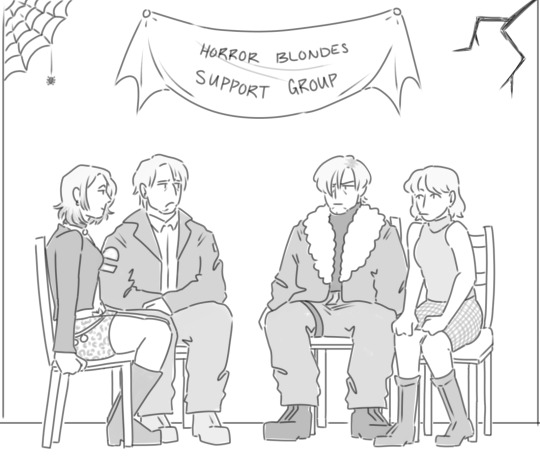
the gang goes to therapy.
#love these freaks#dresses them up like barbies and makes them play together#resident evil#re4#resident evil 4#re4r#silent hill#silent hill 2#sh2#leon kennedy#ashley graham#maria silent hill#james sunderland#art#fanart#my art#egg art#artists on tumblr
8K notes
·
View notes
Text
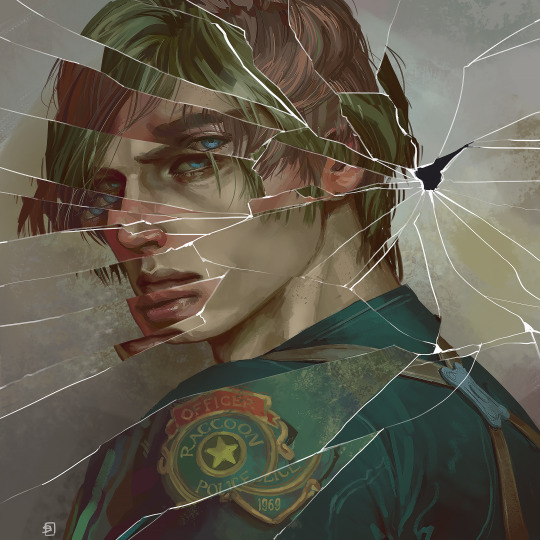
you haven't changed, you just think you have
#resident evil#leon s kennedy#leon kennedy#re4#re4r#re4 remake#leon scott kennedy#re2#resident evil 2#re2r#re2 remake#resident evil 4
14K notes
·
View notes
Text
wait
✔️ cursed production
✔️ last minute name change
✔️ focus on relationship with companions

#dragon age#da2#dragon age 2#dragon age 4#dragon age veilguard#please please please please please oleas
11K notes
·
View notes
Text
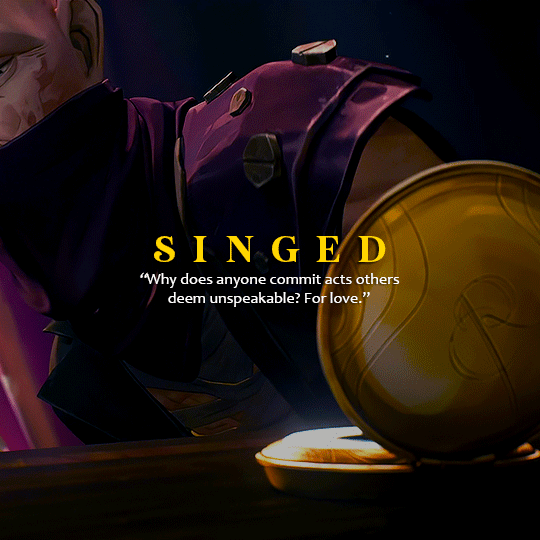
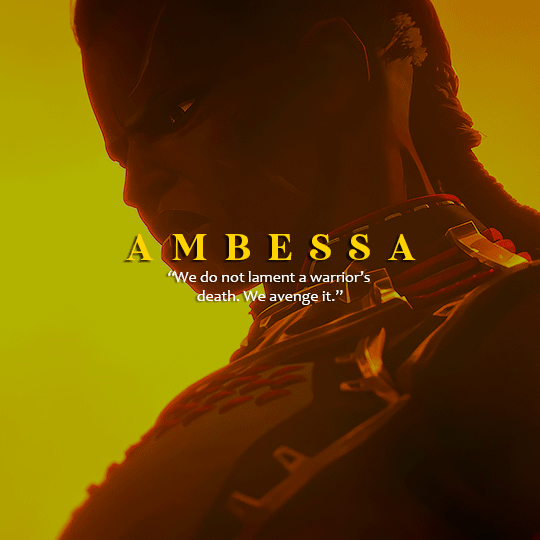
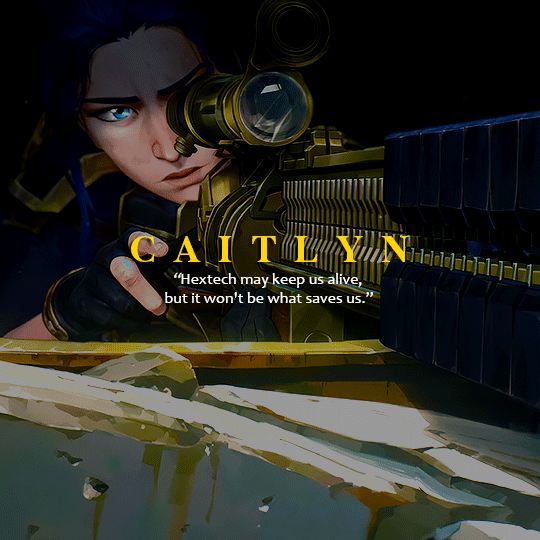

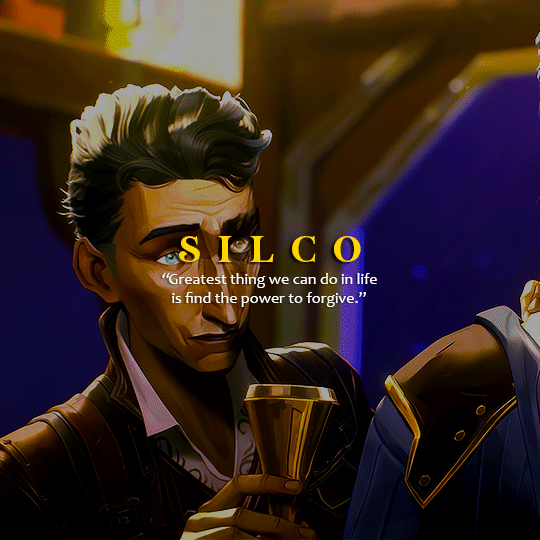
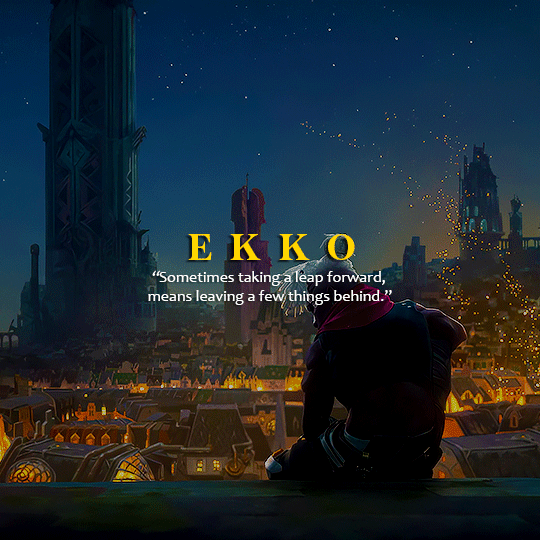
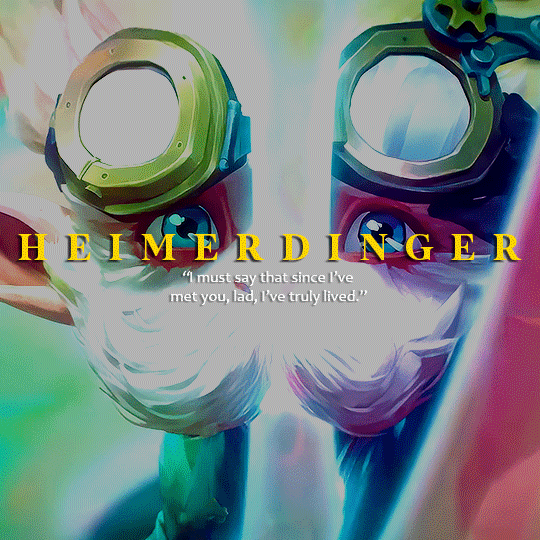

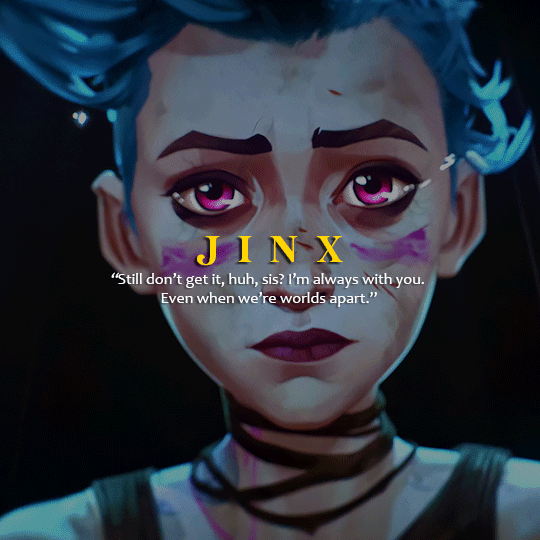

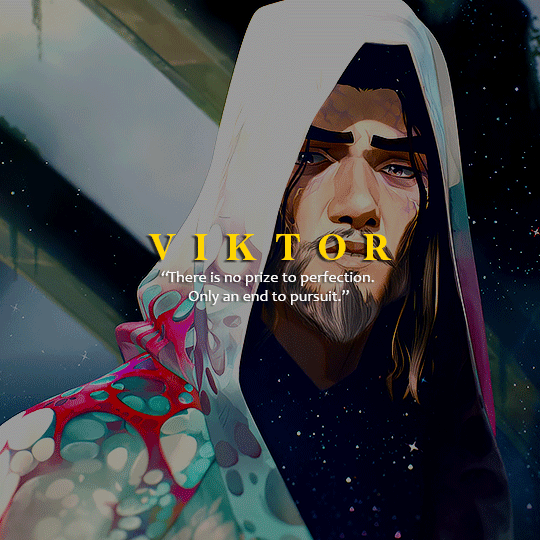
ARCANE: LEAGUE OF LEGENDS Season 2 (2024) + My Favorite Quotes
#this took me 4 hours to do idk why it took that long ngl#im definitely doing a part 2 because theres TOO MANY good quotes from the series#arcane#arcaneedit#arcane s2#arcane season 2#arcane quotes#arcane season 2 spoilers#league of legends arcane#caitlyn kiramman#singed#ekko#heimerdinger#ambessa medarda#ambessa#caitlyn#vander#silco#jinx#jayce talis#jayce#viktor#vi#s2 ep9#s2 ep8#s2 ep6#s2 ep5#s2 ep7
5K notes
·
View notes
Text
I guess Chilchuck has brought us right back to 'adults who are short are child-coded and if you like them you're a pedophile' discourse huh
#spitblaze says things#anyway.#1) please google 'halfling'#2) THERE ARE ADULTS WHO ARE VERY SHORT. DID YOU KNOW THAT. WERE YOU AWARE#3) THERE ARE ALSO ADULTS WHO HAVE CHILDLIKE FACES. DID YOU KNOW *THAT*#4) IF YOU THINK THE ONLY REASON A MAN COULD LOOK LIKE THAT IS BECAUSE THEY ARE TRANS MEN IM GOING TO KILL YOU#5) jesus christ will you just read/watch dungeon meshi and understand that the entire conceit of his character and of half-foots in general#is that its fucked up to treat people as children or subhuman because they do not 'look' like what you expect a cisgender adult to look lik#anyway if i see one more person call Chilchuck 'has gray streaks and an ex wife and three adult daughters' Tims a sh*ta#im gonna start smashing things#doin numbers
10K notes
·
View notes
Note
how about A Gordon and Edward Analysis
Ooh yes… the OG dynamic! The first one, the foundation for everything!
(Unless you count “Edward and railwaymen”... or “Edward and coaches”... which, to be fair, I do…)
These two are insane (affectionate). Hot take but this may be the saddest relationship on the N.W.R.?* They’re my two bestest boys but, man. Their dynamic is fucked. Edward and James are nothing compared to this. Gordon and Henry are healthy, relatively.
tl;dr: They need couples counseling.
Jobey, aren't you being a little dramatic?
Am I? Take my hand. Let's do a close read…
* This is going to focus on RWS (not tv series). Right now and for the rest of this post, I’m going to be talking strictly from the Wilbert books (and, thus, analyzing their relationship from the ‘20s to the ‘60s only) unless I specify otherwise
Part 1 (this post): Gordon, what's your damage? 😭 / The Doylist Reason / Rent. Free.
Post 2 (upcoming post, link later): Edward's Defences / Gordon's Growth
Post 3 (upcoming post, link later): Collision / Uh… Cleanup Crew?
tagging @weirdowithaquill because you asked for Edward+James and i wound up folding in most of what i have to say about them into this analysis 😅 in RWS they're a good foil for understanding Edward+Gordon
Gordon, what's your damage? 😭
There is a strong drive, right here on ttteblr, to portray how despite some notorious conflicts these two are canonically old friends. Also that maybe Gordon’s bad behavior is not so bad.
That is a valid mission, indeed I flatter myself that I had some influence steering us down this road a few years back, however sometimes I think we're in danger of forgetting how often Gordon really has just been like… This:
"You watch me this afternoon, little Edward," he boasted, "as I rush through with the Express; that will be a splendid sight for you." (1923)
“I’ve done it! I’ve done it! I’ve done it!” he said proudly, and forgot all about Edward pushing behind. He didn’t wait to say “Thank you”... (1923)
Edward puffed and pulled, and pulled and puffed, but he couldn’t move the heavy coaches. / “I told you so,” said Gordon rudely. (1923)
So Edward found coaches for the three engines, and that day the trains ran as usual. / But when The Fat Controller came the next morning, Edward looked unhappy. / Gordon came clanking past, hissing rudely. “Bless me!” said The Fat Controller. “What a noise!” (1926-1934) *
When Gordon and Henry heard about the accident, they laughed and boasted. “Fancy allowing cows to break his train! They wouldn’t dare do that to us. We’d show them!��� they boasted. (1952)
“The Fat Controller would never approve,” said Gordon loftily. “Branch Lines are vulgar.” (1965)
Edward scolded the twins severely, but told Gordon it served him right. Gordon was furious. / A few days later, some Enthusiasts came. On their last afternoon they went to the China Clay Works. / Edward found it hard to start the heavy train… / “Just pathetic,” grunted Gordon. “He should give up and be Preserved before it’s too late.” (1965) **
I am sportingly not even saddling Gordon with the blame for the line "Driver won't choose you again. He wants strong engines like us." (In TTRE, this is said by the collective of big engines – although the illustrations do clearly point a finger at Gordon. Still, like I said, I'm going to be sporting. The pictures aren't canon.) Also note that in RWS Gordon doesn't say "No use at all" when he learns Edward has come to push his train; that whole bit of dialogue was something Britt and David cooked up.
Even being as generous as possible, this still leaves us with… seven. Seven instances of Gordon taking a shot at Edward.
That’s actually quite a… lot?
I mean, not necessarily if we were racking up all the complaints, ranging from major to miniscule, that you’d have about someone you’d lived and worked with for over 40 years, lol.
But we shouldn’t actually be expecting a complete inventory at all. RWS books are minimalist on detail. There's just so much less in 'em than the sprawling TVS with its 24 full series, lol. And let’s focus here on just the Wilbert canon, since that’s where all these examples of Gordon being rude to Edward come from. Seven times, in 26 books. For context, the number of times Thomas teases Gordon in this same corpus is… three. Three times. Thomas cheeking Gordon. Also kind of a fundamental dynamic. THRICE!
Passengers saying What a Bad Railway It Was… two. Number of times Thomas and Percy squabble… three. Number of accidents that Percy gets into (and this includes the piddling stuff, like crashing into that wagon of flour that was left on the rails)… five. Reflect on that for a moment: Gordon is a dick to Edward in canon more often than Percy's had an accident. That's crazy. Indeed, there are plenty of RWS characters who are canonically friends or who shed together who don't even get to have seven shared moments. It's actually kind of a fun game, to try to think of any two of them who, like Gordon and Edward, have seven of a specific kind of interaction. Have at it! There has to be something I've missed.
But I hope it's clear, that by the standards of these books this character dynamic is hit A LOT. You know me, I'm going to go on to contextualize a lot of these seven examples, and I'm going to play Gordon defense attorney to a certain degree, and plead mitigation. But I can't possibly explain away the sheer size of this pile of evidence. This specific dynamic is not meant to be overlooked. It's not meant to be minimized.
This is a big inescapable part of what their relationship is.
The Doylist Reason
Now, in fairness, the meta reason this dynamic is so pervasive and repeated is that it's The Template.
“Big braggadocious engine needs help from humble plucky little engine” was trite before The Three Railway Engines was published. This is not a slam; I’m not gonna get on another parent’s case about the story they improvised for their kid because “it relies on cliches.” But it’s just a fact: Edward and Gordon, to begin with, are simply THE foundational cliche of “anthropomorphic train” media.
One of the reasons the RWS (and the whole subsequent TTTE juggernaut) is so successful is because it features so many creative variations on this template. Most of the relationships are just "okay so one of them is the Gordon, and one of them is the Edward, but this time there's a twist!" (This is how you get Thomas as the big breakout character – because the Thomas and Gordon variation is a lot less cliched, and a lot more fun.)
Just an observation.
Now, Awdry did keep writing the OGs again and again and again, for a couple'a decades, and he developed them both quite a bit. So by the end of his run we do have a very elaborate Jenga tower built on this template. Loads of fun* to be had yet. So let's jump right back into analyzing this shit in-universe.
* For certain definitions of fun 😈
Rent. Free.
The first thing I wanted you to note about Gordon’s Edward-directed crimes was that there were a lot of them.
The second thing I want you to note is that… these are, perhaps, not all so very criminal?
Some of it is – the group harassment about the strikebreaking and the “Just pathetic!” bit (more on both of those later). But a lot of the rest of it strikes me as more the results of being blunt or un-self-aware or even just plain boisterous than actively choosing to bully anyone. In particular, the early stuff, the Three Railway Engines stuff on which the whole foundation of their relationship is laid…
"You watch me this afternoon, little Edward," he boasted, "as I rush through with the Express; that will be a splendid sight for you." (1923)
Condescending. Tone-deaf. Belittling (literally). But… not actually spiteful?
“I’ve done it! I’ve done it! I’ve done it!” he said proudly, and forgot all about Edward pushing behind. He didn’t wait to say “Thank you”... (1923)
That's not cool, but it's also not… that bad.
At the point where The Three Railway Engines ends with the claim "all three engines are now great friends," it's like, sure. You can see that. Indeed you can see it much more easily for Gordon and Edward than you could with Gordon and Henry – Gordon's behavior toward the latter (though in a similar vein of "kick a fellow when he's down") was much more extreme, and Henry's behavior was so bizarre that you hardly know what to expect from him next. (What you don't expect is that those two will be joined at the hip for the next thirty years.) By contrast the Edward and Gordon relationship should be kinda easy, the former's really nice so the latter just has to remember some basic manners and they should be okay. Right?
But that's not how it goes. Partly of course because Gordon has much more out-of-pocket shit in him than he ever displayed in TTRE. But I'm going to set aside some of the more severe tests that Gordon makes of these friendships till later – stuff like punishing Edward for breaking his tender engine strike and "Just pathetic!" (not to mention all the needling of Henry around the Flying Kipper accident). Setting that aside, Gordon's original sin is simply being a dumb, self-centered, out-of-touch rich jock. Yes, he’s consistently “rude,” but usually more in an ignorant, superior, “I cannot be bothered to try not/learn how to prevent myself giving offense” sort of way than an aggressive, malicious “hurting you for fun and profit” sort of way. In contrast to, say, James. Whose behavior really is consistently mean. And who is hurtful on purpose, because he’s having a bad day and tearing someone else down is how he copes. James insults; Gordon (except in those couple of asterisked cases that we’re tabling for later discussion) merely boasts. And it’s really quite interesting to me how Edward seems to have much less problem with the former than with the latter!
Because he does have a problem with it. We know, because for most of this long list of incidents the source must be… him.
This is a series where canonically the Author is a human “friend of the railway,” collecting and publishing these stories in order to publicize the railway to the world. This is something that really can’t be forgotten when reading these (indeed, thanks to the “Author’s Note” each time, the books will not let you forget it). The narrator is canonically a figure in this universe, and is not omniscient.
And, when it comes to the Edward/Gordon dynamic, the Author’s point of view is consistently collapsing into Edward’s point of view.
Certain times when the narrator editorializes about details, we can be pretty sure, are lifted straight from Edward’s take on the moment (and, if not Edward’s, then The Fat Controller’s, which to be frank is also roughly aligned):
Edward puffed and pulled, and pulled and puffed, but he couldn’t move the heavy coaches. / “I told you so,” said Gordon rudely. (1923)
That Gordon said that, I don’t doubt. That the adverb is necessary, or even correct? That’s… that’s interpretative. I totally understand why Edward and TFC, respectively, took it that way, but I’m not 100% convinced it was meant that way, nor that everyone else on scene regarded it as much more than Gordon glumly colour-commentating the group effort to recover from his breakdown. Is he being ‘rude’? Or is he merely too blunt for North Western sensibilities?
Anyway, even if ‘rude’ is the correct interpretation, it is again worth noting that it’s certainly not part of the narrative as Gordon would have been telling the story in the 1940s. (The 1940s! It's over twenty years later! And Edward is getting his side of the thing in fuckin' print… Big win, that.)
So, if we agree that Edward is the source the Author primarily relies on for these 2+4 scenes, what does this show us? Well, for one, I'd say it shows us that Edward may ‘forgive’ all this but he is certainly not forgetting one bit of it. Indeed the narrative’s repeated return to this dynamic almost certainly mirrors how much room Gordon’s superior attitude occupies in Edward’s headspace.
Which is kinda wild. There's no evidence Edward is petty by nature, if anything there's a lot that suggests the opposite. Gordon getting this far under his paint is… something of an achievement.
But we can see how he managed:
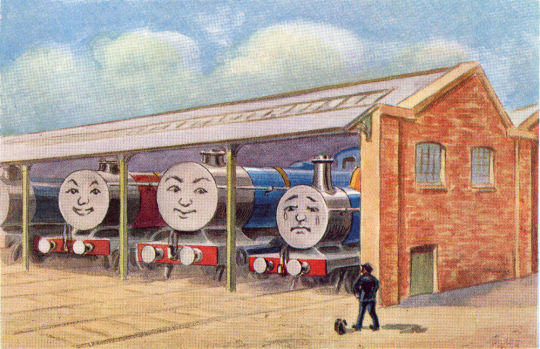
Even discounting the illustration. Even if Gordon isn’t the speaker. He was one of Them. The other big engines who tormented Edward may have been worse, were probably worse, but they are gone and Gorson remains, an eternal reminder of 1922-3. Of the primordial period when Gordon has the power, Edward doesn't. Gordon is on top of their world; Edward is left alone in a shed, cut off from all his former friends and supporters, afraid for his life, roundly denigrated by the engines he lives with, and quite possibly lost his previous job directly in favor of Gordon. Who, at best, is careless and oblivious. Who, at worst, is belittling and rude.
Ouch.
Gordon's arrival is still bound up, probably even the direct cause, of one of the most miserable and humiliating year of Edward's life. And – maliciously or not – everything about how Gordon conducts himself only serves to keep tearing again at that wound.
Ouch.
If Edward were to write off Gordin as a potential friend till the end of time, well, you know, it would be valid. Not very "wise" or anything, but it’d be understandable.
To be clear, I don't think this is what happens. I'm not going to argue that the famous line from the end of TTRE is a lie, some sort of diplomatic fiction. No, Gordon and Edward quickly make a go at genuine friendship. Indeed, throughout all this mess, even as I analyze it in excruciating detail… there's something kind of touching and weirdly wholesome about the way that they both try so hard to make it work despite the headwinds against them. Edward (and Gordon, for that matter) make sincere efforts to overcome the wounds they have inflicted on each other's egos. Kudos, lads.
However, I also don't agree with a vast assumption on the part of many fans that Edward solves the issue by simply… rising above. Puts aside his own ego, takes a pacifist approach to all the jockeying for position, acts purely as mentor, just sits on the moral high ground and philosophically accepts everything as it is.
This is canonically nonsense. Yes, Edward was passive in his first-ever story – he was at the end of the line; he needed someone to give him a damn break before he even had options – he doesn't actually remain passive after that, though. Indirect (he’s allergic to conflict), but not passive. We see very clearly that Edward may be judging status by a bit of a different yardstick than Gordon et. al., he doesn’t think picking up the slack on secondary or support jobs is a source of shame and his relative physical weakness drives him to find different ways to distinguish himself, but, like, when it comes to points-scoring, he’s still very much in the game. Of course his first priority is just to be wanted and useful at all, but that is not the end of it. Edward is competitive, with a proper amount of pride (“Good! Don’t let them beat you”) and he has normal engine-y desires and ambitions (“Look at me!”). ‘Course, in his case they don’t drive him to make a straight-up nuisance of himself. But, still. It matters to him that he gets to be the Smartest Engine in the Shed. It matters to him that he has nice blue wheels. It matters to him that he’s important, it matters to him that he’s respected, and he’s quite as pleased to get important jobs as any other engine (even if he doesn’t begrudge an engine who gets a jammier job than him). When canon kicks off no driver at Vicarstown has laid a claim on Edward, Topham Hatt has just succeeded some previous General Manager and shows no sign of knowing or remembering that Edward exists, and Edward has nothing – no job and no allies. It is not an accident that all three of those things change. It’s not even merely a natural karmic reward for being a nice, humble engine with a winsome smile. Edward set out to earn recognition. His main method (be helpful and reliable to others) is admirable, but it is also a means to a goal (be recognized as important and ensure he's never again stuck in the sheds). And he succeeds wildly. There’s luck there, sure - there always is, with success - but he didn’t have a lot of natural advantage at his tender, either. What I’m saying is that he’s not some innocent unworldly soul who aww-shucks’d his way into it. He meant for this to happen. He played smart and he worked hard for it – but, like, he had to know what it was he wanted.
Am I belaboring this point? Maybe. But I feel like so many people only see Edward as nothing more than a dutiful, responsible, maybe even stuffy oldster with at most an occasional twinkle of fun in his eye and, hell, often that’s not even a big problem (though I think it sells short later characters who arrive and who are ACTUALLY more unambitious and above-it-all than Edward - for instance, I think Donald and Douglas are actually our first tender engines who show up and legitimately just never once give a shit about their status, at least not beyond the status of ‘alive’ vs. ‘dead’). But I think it IS a problem, that it does lead you wrong, when you bring that assumption to bear on Edward’s relationship with Gordon. Edward never "mentors" Gordon. It’s a fundamentally competitive relationship. Oh, maybe it shouldn’t be! It shouldn’t be, because Edward is not jealous by nature and so if Gordon were halfway chill himself it never would have been. And it shouldn’t be, because Gordon so easily outclasses Edward that there should be no reason for Gordon to ever get jealous, either. But they both manage, somehow. Edward’s not just benignly pulling a quarter out of Gordon’s ear every so often, to gently remind him that Gordon doesn’t know everything yet. He might have settled into this role, if Gordon hadn’t scared the existential shit out of him throughout the ‘20s, but Gordon did and so Edward didn’t. Edward’s in it to win it, babe! He accepts that his express days are over, but he’s not willing to be told he never again gets a cut of the cake, either – and, when Gordon snubs him, Edward is not just rising above the fray and letting it go. They’re always playing tug-of-war.
To reiterate: I don't think Edward is faking friendship after Gordon's failed express. He's really working on it – and he might have had more success letting go of the previous wounds Gordon inflicted on his ego – if only Gordon had stopped that sort of shit, going forward!
But that's asking too much. It's still the 1920s, baby; Gordon's gonna Gordon; so what's a little tender engine to do?
#tune in next time#(tomorrow)#(there will be lots more CLOSE TEXTUAL ANALYSIS tomorrow 😈)#ttte#chatter#ttte analysis#the railway series#ttte edward#ttte gordon#ttte james#(he really said 'why am i NOT in it?')#(i caved. quickly. like a sucker.)#ttte henry#(he wanted to be left out of it but absolutely could not be)#2+4#3+4#2+5#long post#minty ty so much for this ask. working on it has left me even more Normal about these guys than i originally was! ! !💯😃👍
43 notes
·
View notes
Text
god i wish i wouldn't have to explain the intricacies of the neopets economy to you guys to give the full context for this but. the new neopets team that took over from jumpstart pledged that they were going to curb the inflation of rare items, which is great because a lot of rare items are worth literally hundreds of millions of neopoints, they are unbuyable unless you've been playing actively for 20 years. they did this earlier with a site festival that included random loot boxes, some of which had Unbelievably Fucking Rare And Precious items worth 200 million neopoints apiece.
well.
today they have gone a step further. by releasing this year's trick-or-treat bags. and having the trick-or-treat bags be stuffed to the brim with unbelievably fucking rare stamps, weapons, paint brushes, defense magic, and other unbuyables. (all prohibitively expensive and in-high-demand types of items.)
jellyneo, the premier neopets website, has recorded prices of some items plummeting from 2,000,000 neopoints to 4,000 neopoints IN THE LAST THREE HOURS. this is when most people haven't even heard about the event or OPENED THEIR BAGS YET.
and of course. cherry on top. 20-year-old account holders are crytyping on the site events neoboard about how mean and cruel it is to make rare stamps part of the prize pool, because their entire identity hinges on being part of the neopian bourgeoisie, and they are having MELTDOWNS over their assets being devalued until they're part of the lowly proletariat.
this is a children's game for children btw.
none of the money is real.
i'm having such a good time.
#i paused in opening my bags to write this bc the site's getting so much traffic that it's taking 3 minutes to refresh one page#i've pulled a paint brush a stamp that used to be worth 2 mil (it's not now) and another stamp that's always been cheap.#i have 4 more bags to open still.#i Love It Here.#neopets
34K notes
·
View notes
Text
been seeing homies get deep into "the terror" and making me want to rewatch SO i spent two hours in the dead of night reading the wiki/the subreddit/other linked articles and like. one of those articles was deadass fucked up
there was a woman who spoke inuktitut who was writing a book containing a lot of inuit oral histories, and in nunavut she was able to hear passed-down recollections of when survivors from the franklin expedition were passing through
and like. i can't imagine being an inuit family/group, knowing that europeans exist but having never seen them, seeing 8-9 shambling, blue-skinned, cold-to-the-touch out-of-their-minds white men come wandering by. they invited the men inside their igloos for warmth, for food, to be hospitable. the men refused to eat, refused to speak, and when trade was offered, clutched their possessions close and refused to entertain the idea of trade. this was, offputting, to say the least. the group set them up in their own igloo, with their own fire, and left three whole seals for them to eat. and then they fled cause what the FUCK get out of there. they came back in a few days to check on the strangers. the three seals were completely untouched, while all of the men had killed and eaten each other
i mean. fuck dude. there are obviously pretty dark angles to view the franklin expedition from– honestly can't think of a good angle, it's pure colonialism and british exceptionalism– but that specific interaction, that inuit group who were living lives as normal until a dozen fucking walking dead showed up and did cannibalism. no wonder that story got passed down, i'd be shitting my pants if i saw that
#I will try to find a link to the article again tomorrow but I'm on 4 hours of sleep rn#On account of spending 2 hours reading about The Terror on a work night#So the fact checking will have to wait. But holy fuck dude#The Terror
18K notes
·
View notes
Text


Devotion
#leon kennedy#leon s kennedy#leon scott kennedy#leon kennedy fanart#leon resident evil#re4 leon#resident evil 4#resident evil#re4#resident evil 2#re2r#re2 fanart#re2 remake#re2 leon#re4 fanart#re4 remake#resident evil 4 remake#art#digital illustration#illustration#fanart#artists on tumblr#my babygirl
7K notes
·
View notes
Text

weird looking cat
#damian wayne#goliath#batman#batman and robin#dc comics#i dont encourage redraws or resharing of [redacted] art#but i was inspired by everyone else's human interpretation.......#i got a bad habit of not wanting to spend more than 2-3 sessions on an artwork so i “”“accidentally”“” stayed up until 4:30am for this#whoopsies :3
7K notes
·
View notes
Text


@strangeravatar made a great point
i was gonna focus on the spike-hotboxing-celestia aspect but i got distracted somewhere along the way and i think i forgot what joke i was trying to make
but dont you think its interesting how many guards of the exact same color/body type she's managed to accrue?? i do
ooohh you want to go look at our stickers so bad
#conclusion: if one of them smokes weed they BOTH get high#but it's a baby's metabolism vs a sun god's so if CELESTIA is zooted spike is DEAD#i also like to imagine rainbow dash becomes quite the philosopher while under the influence#and yes their bong IS zecoras potion bottle from season 4 episode 1/2 thanks for asking#anyways#this is a long ass comic with. minimal payoff. but we're POSTING IT ANYWAY BABES#i couldnt decide if it would be funnier to have zephyr breeze at the end or one of those regular white blue-haired blue-eyed stock guards#i left it as zephyr. the real ones get it#i guess the real ones are everybody who saw season 9 episode 4#but cmon why ELSE do you think celestia would hire that guy#it's cause she's a freak and im calling her out on my tumblr dot com#mlp#mlp fim#mlp friendship is magic#mlp g4#mlp fanart#princess celestia#princess luna#rainbow dash#fluttershy#spike the dragon#zephyr breeze#horse comic#me art#also that font is one i made based off my own handwriting!! im so happy about it#though it does look. exactly like comic sans#idk how to feel about that tbh#wow you can just talk to yourself in the tags forever and no one will even know huh
5K notes
·
View notes